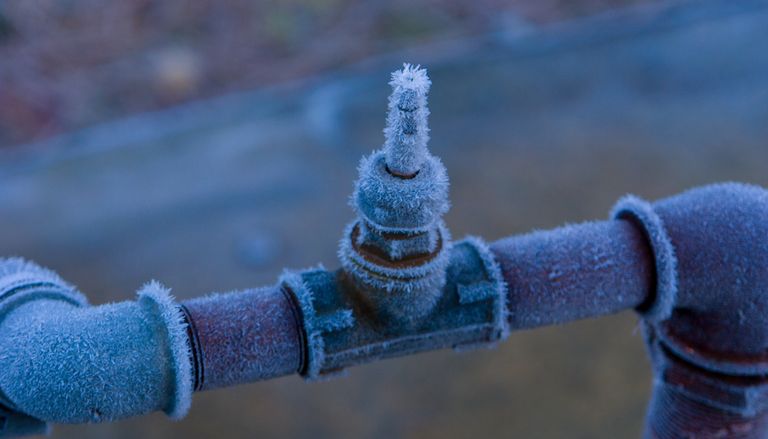Key Methods for Avoiding Frozen Plumbing in Winter
Key Methods for Avoiding Frozen Plumbing in Winter
Blog Article
This great article underneath pertaining to How to Prevent Your Pipes From Freezing is exceedingly compelling. You should check this stuff out.

Winter can damage your plumbing, especially by freezing pipelines. Below's how to stop it from occurring and what to do if it does.
Intro
As temperature levels drop, the risk of icy pipelines increases, potentially causing costly fixings and water damage. Recognizing exactly how to stop frozen pipes is crucial for house owners in cool climates.
Recognizing Icy Pipes
What causes pipes to ice up?
Pipelines ice up when revealed to temperatures below 32 ° F (0 ° C) for extended durations. As water inside the pipelines ices up, it increases, putting pressure on the pipe walls and potentially causing them to burst.
Dangers and damages
Icy pipelines can lead to supply of water interruptions, residential property damages, and costly repair services. Burst pipes can flood homes and cause considerable architectural damage.
Indications of Frozen Pipeline
Identifying icy pipelines early can stop them from breaking.
How to identify frozen pipes
Seek decreased water flow from faucets, uncommon odors or sounds from pipelines, and visible frost on revealed pipelines.
Avoidance Tips
Protecting vulnerable pipelines
Cover pipelines in insulation sleeves or make use of heat tape to shield them from freezing temperatures. Focus on pipelines in unheated or external locations of the home.
Heating strategies
Keep interior rooms adequately heated up, particularly areas with pipes. Open up cupboard doors to enable warm air to distribute around pipes under sinks.
Safeguarding Outside Pipes
Yard tubes and outdoor taps
Separate and drain pipes yard hoses before winter. Install frost-proof spigots or cover outside taps with insulated caps.
What to Do If Your Pipes Freeze
Immediate activities to take
If you believe frozen pipes, maintain faucets open to alleviate stress as the ice melts. Make use of a hairdryer or towels taken in hot water to thaw pipelines slowly.
Long-Term Solutions
Architectural modifications
Consider rerouting pipelines away from outside wall surfaces or unheated areas. Add extra insulation to attics, cellars, and crawl spaces.
Upgrading insulation
Buy high-grade insulation for pipes, attics, and wall surfaces. Proper insulation helps keep consistent temperature levels and minimizes the risk of frozen pipelines.
Final thought
Preventing icy pipelines calls for proactive actions and fast feedbacks. By recognizing the causes, indicators, and preventive measures, home owners can safeguard their plumbing during winter.
Helpful Tips to Prevent Frozen Pipes this Winter
UNDERSTANDING THE BASICS: WHY PIPES FREEZE AND WHY IT’S A PROBLEM
Water freezing inside pipes is common during the winter months, but understanding why pipes freeze, and the potential problems it can cause is crucial in preventing such incidents. This section will delve into the basics of why pipes freeze and the associated problems that may arise.
THE SCIENCE BEHIND FROZEN PIPES
When water reaches freezing temperatures, it undergoes a physical transformation and solidifies into ice. This expansion of water as it freezes is the primary reason pipes can burst. As the water inside the pipe freezes, it expands, creating immense pressure on the walls. If the pressure becomes too great, the pipe can crack or rupture, leading to leaks and water damage.
FACTORS THAT CONTRIBUTE TO PIPE FREEZING
Low Temperatures: Extremely cold weather, especially below freezing, increases the risk of pipes freezing. Uninsulated or Poorly Insulated Pipes: Pipes located in unheated areas, such as basements, crawl spaces, or attics, are more prone to freezing. Insufficient insulation or lack of insulation altogether exacerbates the problem. Exterior Wall Exposure: Pipes running along exterior walls are susceptible to freezing as they encounter colder temperatures outside. Lack of Heating or Temperature Regulation: Inadequate heating or inconsistent temperature control in your home can contribute to frozen pipes. PROBLEMS CAUSED BY FROZEN PIPES
- Pipe Bursting: As mentioned earlier, the expansion of water as it freezes can cause pipes to burst, resulting in significant water damage.
- Water Damage: When pipes burst, it can lead to flooding and water damage to your property, including walls, ceilings, flooring, and personal belongings.
- Structural Damage: Prolonged exposure to water from burst pipes can compromise the structural integrity of your home, leading to costly repairs.
- Mold and Mildew Growth: Excess moisture from water damage can create a favorable environment for mold and mildew growth, posing health risks to occupants.
- Disrupted Water Supply: Frozen pipes can also result in a complete or partial loss of water supply until the issue is resolved.
WHY CERTAIN PIPES ARE MORE PRONE TO FREEZING
- Location: Pipes located in unheated or poorly insulated areas, such as basements, crawl spaces, attics, or exterior walls, are at higher risk of freezing.
- Exterior Pipes: Outdoor pipes, such as those used for irrigation or exposed plumbing, are particularly vulnerable to freezing as they are directly exposed to the elements.
- Supply Lines: Pipes that carry water from the main water supply into your home, including the main water line, are critical to protect as freezing in these lines can affect your entire plumbing system.
- Underground Pipes: Pipes buried underground, such as those connected to sprinkler systems or outdoor faucets, can be susceptible to freezing if not properly insulated.
https://busybusy.com/blog/helpful-tips-to-prevent-frozen-pipes-this-winter/

I recently found that entry on Prevent Frozen Pipes while browsing the internet. Enjoyed reading our blog? Please share it. Help another person check it out. Thank-you for going through it.
Go Deal Report this page